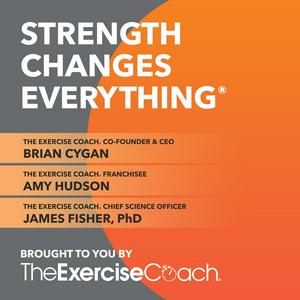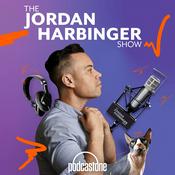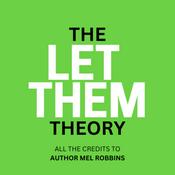273 afleveringen
Tips on Healthy Eating: How to Choose the Best Foods for Your Plate with Gerianne Cygan
10-2-2026 | 1 u. 1 Min.What should actually be on your plate if you want to feel better, get healthier, and see real results from your workouts?
Amy Hudson sits down with Gerianne Cygan to break down a simple, practical approach to eating that supports how your body moves, recovers, and ages. Drawing from the Exercise Coach Nutrition Playbook, they unpack how everyday food choices impact three major health trouble spots: blood sugar regulation, inflammation in the body, and digestive health.
They walk through the core categories of foods that should make up your plate, explain why each one plays a critical role in metabolic health, and show how the right choices can amplify your exercise results, improve energy, and support long-term strength and independence.
Gerianne shares why protein is the most important food group. Protein isn't just for building muscle; it's essential for repair, hormone production, and immune function. Without enough protein, the body simply can't perform at a high level long term.
Gerianne explains how muscle directly impacts your quality of life. Muscle is a key driver of metabolic health, balance, and strength as we age. It's also one of the biggest factors in whether you remain independent later in life.
Why muscle loss accelerates as we get older. As we age, our muscles become less responsive to protein intake. That means older adults actually need more protein, not less, to maintain strength and resilience.
Gerianne reveals why animal protein is considered the gold standard. Animal sources contain all nine essential amino acids in the correct proportions. This complete profile is critical for muscle repair, hormone production, and immune health.
Gerianne explains why plant protein is not the same as animal protein. You need significantly more calories from plant sources to match the protein in animal foods. That makes it much easier to overeat while still falling short on protein.
Amy covers a common mistake many people make when choosing plant protein. The volume required to hit protein targets is often underestimated. This is especially important for anyone working with a personal trainer to improve body composition.
Learn why quality food and supplements act like daily medicine for the body. Cutting corners here often shows up later as health problems.
Gerianne reveals why vegetables deserve a permanent place on your plate. They provide micronutrients your body can't produce on its own. Vegetables also support gut health, hormone balance, and inflammation control.
Amy covers the smartest way to prepare vegetables for maximum benefit. Light steaming or sautéing preserves nutrients better than aggressive cooking. Mixing raw and cooked vegetables creates variety and better overall nutrition.
Gerianne reveals how to eat fruit without wrecking your blood sugar. Whole fruit, paired with protein or fat, helps slow sugar absorption. This is especially important for people managing diabetes or fat loss.
Gerianne shares simple rules for eating fruit without spikes. Choose whole fruit instead of juice and watch portion size. Pair fruit with protein or fat to slow sugar absorption.
Gerianne talks about healthy fats and why they're essential. Fats provide long-lasting energy and support brain, heart, and hormone health. Omega-3s in particular play a major role in mood, memory, and inflammation control.
The fear many people still have about fat. Growing up in the low-fat era taught many that eating fat makes you fat. In reality, the right fats help regulate hormones and support metabolic health.
Gerianne shares how qualified personal trainers approach long-term nutrition. A good coach focuses on food that supports strength, recovery, and independence, not quick fixes. Nutrition choices today determine how well your body performs years from now.
Which is the best drink to take for long-lasting health? According to Gerianne, water is always the right answer, whether you're on a 30-day challenge or not. Proper hydration supports digestion, energy, and overall performance.
Mentioned in This Episode:
The Exercise Coach - Get 2 Free Sessions!
Submit your questions at StrengthChangesEverything.com
ExerciseCoach.com/weight-loss
The Exercise Coach: Nutrition Playbook by Gerianne Cygan
The Exercise Coach Whole Food Recipes
This podcast and blog are provided to you for entertainment and informational purposes only. By accessing either, you agree that neither constitute medical advice nor should they be substituted for professional medical advice or care. Use of this podcast or blog to treat any medical condition is strictly prohibited. Consult your physician for any medical condition you may be having. In no event will any podcast or blog hosts, guests, or contributors, Exercise Coach USA, LLC, Gymbot LLC, any subsidiaries or affiliates of same, or any of their respective directors, officers, employees, or agents, be responsible for any injury, loss, or damage to you or others due to any podcast or blog content.7 Food Supervillains Sabotaging Your Health: Inflammation and Foods to Avoid with Gerianne Cygan
03-2-2026 | 38 Min.What if some of the foods you eat every day are quietly working against your health? Amy Hudson sits down with Gerianne Cygan to break down food supervillains that may be doing more harm than good when we ingest them. They unpack insights from the Exercise Coach Nutrition Playbook, a practical resource used with clients at Exercise Coach Studios to simplify nutrition and target three major health troublemakers: high blood sugar, systemic inflammation, and poor digestive health.
Tune in to hear how identifying and removing these food supervillains can create meaningful changes in how your body functions, and why a simpler nutrition framework might be the reset your health needs.
Gerianne starts by explaining what "food supervillains" are. These are foods that consistently drive three major health problems: inflammation, high blood sugar, and poor digestive health.
Gerianne covers why sugar earns the #1 supervillain spot. Sugar drives blood sugar spikes, crashes, cravings, and long-term insulin resistance. Over time, this pattern contributes to diabetes, metabolic syndrome, inflammation, and digestive issues.
Learn how sugar hides in plain sight. Sugar shows up under dozens of names, including cane sugar, honey, maple syrup, maltodextrin, coconut sugar, and more. Many people don't realize how much sugar they're eating because the labels look "natural."
Gerianne explains why fruit is still sugar, but not all sugar is equal. Whole fruits provide fiber and nutrients that slow absorption when eaten in moderation. Portion size and food pairing matter far more than cutting fruit out entirely.
Why sugar is so hard to quit. Research shows sugar can trigger addictive patterns similar to drugs like cocaine.
Gerianne explains why grains and starchy foods are supervillains for many people. Grains like wheat, rice, oats, and corn often irritate digestion and raise blood sugar. Components like gluten, lectins, and phytates can damage the gut lining and block mineral absorption.
Amy explains why grains are problematic. Poor digestion can trigger immune responses and systemic inflammation throughout the body. Many modern grains are highly refined and offer little nutritional value in return.
Gerianne shares a practical tip for sugars, grains, and starches. Pairing them with protein and healthy fats slows blood sugar absorption. While this helps blood sugar control, it doesn't fully fix digestive issues.
Why dairy makes the supervillain list. Dairy can raise blood sugar, promote inflammation, and worsen gut permeability. Lactose intolerance and immune reactions are more common than most people realize.
Amy and Gerianne cover how to choose better dairy if you tolerate it. Grass-fed, organic, and fermented options like natural yogurt, kefir, aged cheese, butter, or ghee are better choices. Avoid sweetened, processed dairy with additives and emulsifiers.
Gerianne explains why legumes and soy can be problematic. Legumes contain anti-nutrients that affect digestion and mineral absorption. They're especially challenging for people with existing gut or inflammatory issues.
The protein problem with legumes. Legumes are low in essential amino acids and are less digestible than animal proteins. While they provide fiber, they're not complete proteins.
Gerianne explains how personal training supports metabolic health beyond workouts. An experienced exercise coach can help you understand how food affects your blood sugar, inflammation, and performance.
Why soy deserves extra caution. According to Gerianne, soy is heavily genetically modified and often sprayed with glyphosate. If consumed, organic and fermented forms like tempeh, miso, or natto are better options.
Gerianne explains why artificial sweeteners, additives, and seed oils are supervillains. These ingredients disrupt gut bacteria, worsen insulin response, and trigger inflammation. They're linked to hormonal, neurological, and immune issues.
Gerianne explains why alcohol makes the supervillain list. Current research shows no amount of alcohol is beneficial. Even moderate drinking increases cancer risk and worsens existing health conditions.
Understand how alcohol behaves like sugar in the body. It spikes blood sugar and insulin just like other supervillains. Over time, it contributes to inflammation, poor sleep, and cardiovascular risk.
Amy shares her personal "aha" moment about food. Sugar, grains, and alcohol all process like sugar in the body. Understanding this changed how she viewed everyday food choices.
Amy highlights how to take action with a 30-day metabolic reset. Eliminating food supervillains for a short period helps reveal how your body truly responds. This approach focuses on learning, not perfection.
Amy shares why working with a personal trainer helps connect nutrition decisions to real-world energy, strength, and recovery. That context makes unhealthy food choices harder to ignore and better habits easier to keep.
Mentioned in This Episode:
The Exercise Coach - Get 2 Free Sessions!
Submit your questions at StrengthChangesEverything.com
ExerciseCoach.com/weight-loss
The Exercise Coach: Nutrition Playbook by Gerianne Cygan
The Exercise Coach Whole Food Recipes
What Should NOT Be On My Plate? - Names For Hidden Sugars
This podcast and blog are provided to you for entertainment and informational purposes only. By accessing either, you agree that neither constitute medical advice nor should they be substituted for professional medical advice or care. Use of this podcast or blog to treat any medical condition is strictly prohibited. Consult your physician for any medical condition you may be having. In no event will any podcast or blog hosts, guests, or contributors, Exercise Coach USA, LLC, Gymbot LLC, any subsidiaries or affiliates of same, or any of their respective directors, officers, employees, or agents, be responsible for any injury, loss, or damage to you or others due to any podcast or blog content.- Fast reps vs slow reps: which one builds strength without raising injury risk? In this final installment of the Principles of Exercise Design Series, Amy Hudson and Dr. James Fisher break down one of the most misunderstood topics in training: speed of movement. They unpack what really matters when it comes to fast reps vs slow reps, why intent is more important than rushing the weight, and how smart tempo choices can improve strength without increasing injury risk. Tune in to hear how rethinking speed of movement can completely change the way you train.
Amy and Dr. Fisher explain the mechanics of speed of movement in each phase of a lift. The concentric phase is when the muscle shortens and moves the weight away from the body. The eccentric phase is the controlled return, when the muscle lengthens as the weight comes back.
Dr. Fisher explains why speed of movement is often misunderstood. Most people can't accurately tell how fast they're moving during normal exercises. That's why they rely more on tempo and control.
Dr. Fisher reveals how isokinetic Exobotics devices measure exact distance and exact velocity throughout the lift.
Amy and Dr. Fisher explain why moving fast is not required to produce power. The body responds to effort and tension, not reckless speed. This is a key shift many people miss when training without a personal trainer.
Dr. Fisher covers what the research really says about rep speed and muscle growth. Studies show no difference in hypertrophy whether reps are performed quickly or slowly. That finding challenges a lot of outdated gym myths.
Dr. Fisher reveals why slower lifting can be the smarter option for most people. You still get the same strength, muscle, and health benefits. The difference is reduced stress on joints and connective tissue.
Learn how resistance training supports overall health beyond just muscle size. Benefits like myokine release, metabolism, and energy expenditure occur regardless of rep speed. This reinforces why control matters more than rushing reps.
Why resistance training should never increase injury risk. Amy emphasizes that exercise is meant to improve health, not compromise it. If training causes injury, it's moving in the wrong direction.
Amy explains why exercise should always leave you more capable than before. Training should enhance function, not reduce it.
Dr. Fisher explains how speed of movement can vary depending on the exercise being performed. Different movements may call for different tempos to maintain tension.
Amy explains how personal trainers guide clients using clear tempo prescriptions. A coach can say four seconds up, six seconds down, and explain exactly why. That clarity improves safety, effectiveness, and motivation in strength training sessions.
Mentioned in This Episode:
The Exercise Coach - Get 2 Free Sessions!
Submit your questions at StrengthChangesEverything.com
This podcast and blog are provided to you for entertainment and informational purposes only. By accessing either, you agree that neither constitute medical advice nor should they be substituted for professional medical advice or care. Use of this podcast or blog to treat any medical condition is strictly prohibited. Consult your physician for any medical condition you may be having. In no event will any podcast or blog hosts, guests, or contributors, Exercise Coach USA, LLC, Gymbot LLC, any subsidiaries or affiliates of same, or any of their respective directors, officers, employees, or agents, be responsible for any injury, loss, or damage to you or others due to any podcast or blog content. - Most workouts fail not because people are lazy, but because effort is misused.
Amy Hudson and Dr. James Fisher continue the series on the principles of exercise design.
In this episode, they cover concentrated cardio and why short, high-effort intervals create bigger physiological changes than long, steady workouts. Tune in to hear how brief bursts of intensity improve cardiovascular fitness, raise metabolic rate, enhance insulin sensitivity, increase muscle blood flow, and make everyday tasks feel easier, all while taking far less time than traditional cardio.
Amy and Dr. Fisher discuss concentrated cardio and why it matters. You will learn exactly what concentrated cardio is, what it looks like in real training, and why it pairs so well with strength work.
Dr. Fisher reveals the defining feature that separates concentrated cardio from other workouts. These are brief intervals above seventy five percent of maximal power or very close to all-out effort. The recovery periods are just as important because they allow you to hit that high level again.
Why steady state cardio feels different from concentrated cardio. One approach keeps the same effort the whole time, while the other alternates between hard sprints and slowing down.
Dr. Fisher covers why the benefits of concentrated cardio go far beyond just getting tired. Your VO2 max improves, your resting metabolic rate increases, and insulin sensitivity gets better. This means better oxygen use, more calories burned at rest, and real support for metabolic health.
Amy shares why working with a personal trainer can change how you approach concentrated cardio. A good personal trainer helps you find the right intensity without guessing or overdoing it. That guidance builds confidence, keeps you safe, and makes every hard effort count.
Learn how everyday life starts to feel easier when you train this way. Tasks like running up a short flight of stairs stop feeling overwhelming. You raise the ceiling of what your body believes is hard work by briefly pushing into discomfort on purpose.
Dr. Fisher reveals how concentrated cardio disrupts homeostasis. A single thirty-second sprint can cut intramuscular ATP levels by about half. That level of energy depletion simply does not happen with other forms of exercise.
Dr. Fisher reveals a surprising effect on blood flow after concentrated cardio. Blood flow to muscles can be up to one hundred times higher than at rest or after traditional exercise. This sets the stage for faster recovery and bigger physiological change.
Learn why more blood flow to muscle tissue is important. It helps clear metabolic byproducts while delivering antioxidants and nutrients that drive adaptation. Over time, this improves capillarization and makes oxygen transfer into muscles more efficient.
Dr. Fisher covers the difference between aerobic and anaerobic effort. When you stay aerobic, your body does only what it needs to get through the task. That bare minimum response limits how much progress you can make.
With anaerobic exercises, short bursts of very high effort create stress your body must adapt to. You cannot hold that intensity for long, which is exactly why it works.
Dr. Fisher reveals how muscle fiber recruitment changes with different workouts. Long steady runs mostly use type one fibers. Short, intense intervals recruit type two fibers, which are the ones you want to preserve as you age.
Amy and Dr. Fisher cover the practical rule that simplifies training decisions. You can work long, or you can work hard, but not both. Twenty seconds of true effort creates more adaptation than a full minute of easier work.
Dr. Fisher talks about common fears about working at high intensity. Research shows this approach can be safe and effective even for people with conditions like diabetes, heart failure, and coronary artery disease. With proper guidance and personal training, intensity is not something to fear.
Learn why tracking heart rate can be a useful feedback tool when training. It helps you understand effort and recovery rather than guessing. Used correctly, it builds confidence instead of anxiety.
Dr. Fisher reveals a simple sign that your fitness is improving. If your heart rate drops quickly after exercise, that is a strong indicator of better conditioning. Recovery speed often matters more than peak numbers.
Mentioned in This Episode:
The Exercise Coach - Get 2 Free Sessions!
Submit your questions at StrengthChangesEverything.com
This podcast and blog are provided to you for entertainment and informational purposes only. By accessing either, you agree that neither constitute medical advice nor should they be substituted for professional medical advice or care. Use of this podcast or blog to treat any medical condition is strictly prohibited. Consult your physician for any medical condition you may be having. In no event will any podcast or blog hosts, guests, or contributors, Exercise Coach USA, LLC, Gymbot LLC, any subsidiaries or affiliates of same, or any of their respective directors, officers, employees, or agents, be responsible for any injury, loss, or damage to you or others due to any podcast or blog content. - Are your workouts really making a difference, or are you just going through the motions?
Amy Hudson and Dr. James Fisher continue the series on the principles of exercise design. In this episode, they cover the pillars of a whole effort exercise session and explain how muscle fatigue, eccentric activation, and glycogen depletion work together to build strength, improve metabolism, and deliver lasting results. Tune in to hear practical tips on how to make sure every session counts and gets you closer to your fitness goals.
Amy starts by explaining the three major components of an effective strength training workout: muscle fatigue, eccentric activation, and glycogen depletion.
Learn why not every workout delivers the intended results, even if it feels hard.
Dr. Fisher highlights what a whole effort exercise actually is. It means every muscle is worked fully and to real fatigue. From a metabolic standpoint, that's what boosts calorie use and supports long-term health after the workout ends.
How to spot the difference between moving your body and truly training it. Amy points out that walking, yoga, and similar activities can be great, but they don't always demand your full effort. Whole effort exercise is about getting the biggest return on the time you put in.
Dr. Fisher explains that your muscles are made up of slow-twitch and fast-twitch fibers. As we age, it's the fast-twitch fibers we lose first, even though they're the ones most capable of growing stronger. If staying strong matters to you, these are the fibers you want to protect.
Dr. Fisher highlights a common misunderstanding about fatigue. Cardio exercises like running or cycling can feel exhausting, but they usually last too long and stay too aerobic. That means you never tap into the fast-twitch fibers that drive strength and muscle growth.
Why you need to rethink muscle fatigue. Dr. Fisher explains that real fatigue means recruiting every muscle fiber. Strength training forces your body to work through the full sequence until no muscle is left unused.
Dr. Fisher explains why muscle fatigue matters as we get older. Your body naturally shifts into a "what don't we need anymore" mode over time. If you don't regularly use certain muscle fibers, your body simply lets them go.
Dr. Fisher highlights what eccentric muscle activation really means. Lifting the weight is only half the work, lowering it is where most muscle fibers are being challenged.
How to get more out of every rep you do. Dr. Fisher emphasizes working harder on the lowering phase than the lifting phase. That's where deeper muscle recruitment actually happens.
How to train for better metabolism and long-term health. Amy and Dr. Fisher show that glycogen depletion only happens when effort is high enough to recruit fast-twitch fibers.
If your goal is fat loss, strength, or aging well, you need to work harder and activate your type two muscle fibers.
How to know if personal training is actually working for you. A good personal trainer isn't just counting reps or filling time; they're guiding you toward true muscle fatigue, controlled eccentrics, and real effort.
If you leave every session feeling "busy" but not challenged, you're probably not working hard enough.
Mentioned in This Episode:
The Exercise Coach - Get 2 Free Sessions!
Submit your questions at StrengthChangesEverything.com
This podcast and blog are provided to you for entertainment and informational purposes only. By accessing either, you agree that neither constitute medical advice nor should they be substituted for professional medical advice or care. Use of this podcast or blog to treat any medical condition is strictly prohibited. Consult your physician for any medical condition you may be having. In no event will any podcast or blog hosts, guests, or contributors, Exercise Coach USA, LLC, Gymbot LLC, any subsidiaries or affiliates of same, or any of their respective directors, officers, employees, or agents, be responsible for any injury, loss, or damage to you or others due to any podcast or blog content.
Meer Onderwijs podcasts
Trending Onderwijs -podcasts
Over Strength Changes Everything
The Exercise Coach presents: The Strength Changes Everything Podcast. Learn from Exercise Coach Co-Founder Brian Cygan, Franchisee Amy Hudson, and Dr. James Fisher, Chief Science Officer of The Exercise Coach about how to enjoy a strong, healthy lifestyle. The Exercise Coach's unique two 20-minute workouts a week is how thousands across the United States get and stay in great shape. This podcast gives you the facts, from the experts, in easy-to-understand lessons so you can take control of your life.
Podcast websiteLuister naar Strength Changes Everything, Leef Je Mooiste Leven Podcast en vele andere podcasts van over de hele wereld met de radio.net-app

Ontvang de gratis radio.net app
- Zenders en podcasts om te bookmarken
- Streamen via Wi-Fi of Bluetooth
- Ondersteunt Carplay & Android Auto
- Veel andere app-functies
Ontvang de gratis radio.net app
- Zenders en podcasts om te bookmarken
- Streamen via Wi-Fi of Bluetooth
- Ondersteunt Carplay & Android Auto
- Veel andere app-functies


Strength Changes Everything
Scan de code,
download de app,
luisteren.
download de app,
luisteren.


































